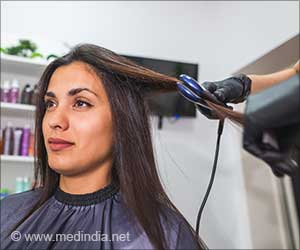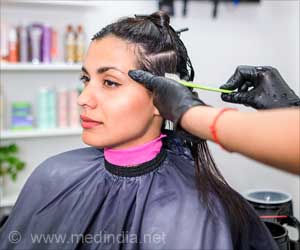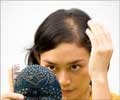Hair straightening products may lead to chemical exposure, negatively impacting reproductive health
- Chemical hair straighteners may impact fertility, especially for Black, Hispanic, and mixed-race individuals. Study finds
- Exposure to toxic chemicals in beauty products may reduce fertility, with people of color more at risk
- Long-term use of hair relaxers are linked to lower fertility rates, according to new research
TOP INSIGHT
Chemical hair straighteners, also known as hair relaxers, may impact a person's ability to conceive . Black, Hispanic, and mixed-race individuals are more likely to use these products and, thus, more likely to be exposed to the toxic chemicals they contain.
Read More..
Racial Disparities in Exposure
Black, Hispanic, and mixed-race individuals were more likely to use hair straighteners and, thus, more likely to be exposed to the toxic chemicals in these products (1✔ ✔Trusted SourceUse of chemical hair straighteners and fecundability in a North American preconception cohort Get access Arrow
Go to source).
"More than half of Black participants reported using their first relaxer before age 10 years, compared with 1-17 percent among other racial and ethnic groups," the study notes. Societal pressure to conform to Eurocentric beauty norms and racial discrimination contribute to the disproportionate use of these toxic beauty products by individuals of color.
Environmental Justice and Health Equity
"Our work underscores the importance of expanding research on the reproductive health effects of beauty product use to promote environmental justice and increase health equity," says study lead author Dr. Lauren Wise, professor of epidemiology at BUSPH.The study highlights the need for greater transparency around the ingredients in beauty products and the impact of these chemicals on reproductive health.
Study Details
The study analyzed survey data on several aspects of hair relaxer use among pregnancy planners in the BUSPH-based Pregnancy Study Online (PRESTO), an ongoing NIH-funded study since 2013 that enrolls U.S. and Canadian pregnancy planners, and follows them from preconception through six months after delivery. For this study, more than 11,274 participants provided information on several aspects of hair relaxer use from 2014 to 2022 (1✔ ✔Trusted SourceUse of chemical hair straighteners and fecundability in a North American preconception cohort Get access Arrow
Go to source).
Impact on Fertility
Compared with those who had never used relaxers, participants who reported ever having used relaxers were more likely to be older, have less education and annual income, a higher BMI, smoke, be unmarried, be residents of the Southern U.S., and experience longer pregnancy attempt time at study enrollment.The study found that current and former use of hair relaxers, greater frequency and duration of use, as well as sustained scalp burns from the products, were associated with lower chances of becoming pregnant. Fertility rates were lowest among participants who used relaxers for at least 10 years or at least five times per year, but the study results did not show clear dose-response patterns for either association.
More Research is Needed
The researchers caution that the full set of ingredients is rarely included on the product label and more data is needed to better understand the specific mechanisms by which relaxers may affect fertility. However, the study underscores the need for greater transparency around the ingredients in beauty products and the impact of these chemicals on reproductive health.To conclude, the study highlights the racial disparities in exposure to toxic chemicals in beauty care and the adverse health consequences that may occur as a result. Societal pressure to conform to Eurocentric beauty norms and racial discrimination contribute to disproportionate use of these toxic beauty products by individuals of color.
The study underscores the importance of expanding research on the reproductive health effects of beauty product use to promote environmental justice and increase health equity.
Reference:
- Use of chemical hair straighteners and fecundability in a North American preconception cohort Get access Arrow - (https://academic.oup.com/aje/advance-article-abstract/doi/10.1093/aje/kwad079/7098283)
Source-Medindia
 MEDINDIA
MEDINDIA





 Email
Email










